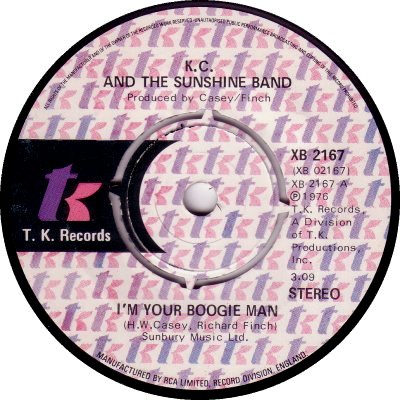
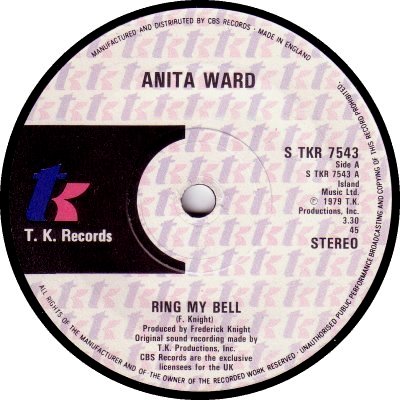
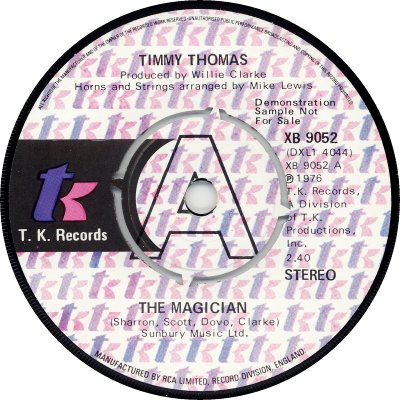
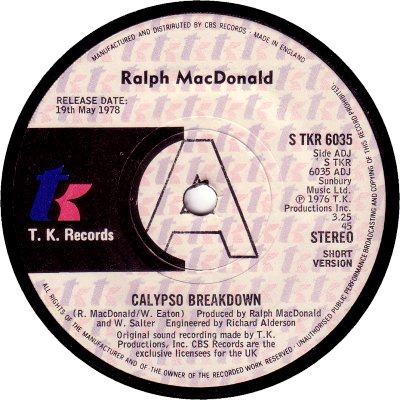
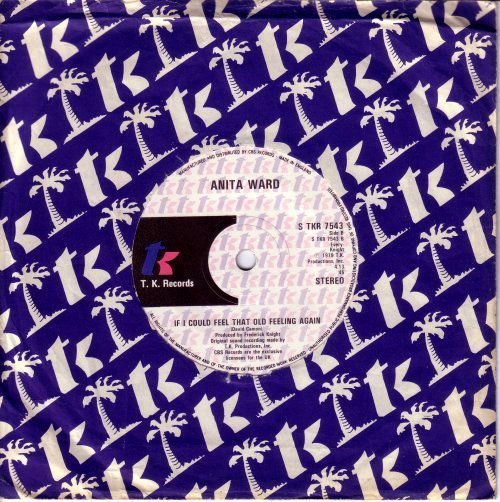
American; out of Miami, Florida. T.K. was owned by Henry Stone, the head of T.K. Productions, an independent group of record labels which was formed in 1970 ('Billboard'; 26th December 1974). T.K. was named after Terry Kane, the man who built Stone's recording studio. In the USA the label operated from 1973 until 1981, and it scored regular Chart hits with artists such as K.C. & the Sunshine Band and George McCrae, who were responsible for the vast majority of its issues in that country. Over here, records from the T.K. group of labels appeared on President's Jay Boy imprint (q.v.) until the 1st of February 1977, when RCA gained the rights to T.K. product. Under the deal T.K. was given its own label identity ('Music Week', 19th March 1977), and from that point material from all the company's associated American labels - including Glades, Clouds, Juana and Dash - appeared on T.K.. When the agreement with RCA expired, in October 1977, T.K. moved to CBS. K.C. & The Sunshine Band continued to enjoy hits throughout, notably a No.3 with 'Please Don't Go' b/w 'I Betcha Didn't Know That' (TKR-7558; 11/79), and other acts such as T-Connection and Peter Brown had Chart entries, but it was Anita Ward who gave the label its only No.1, in the form of 'Ring My Bell' b/w 'If I Could Feel That Old Feeling Again' (TKR-7543; 5/79). In the early '80s, however, the hits dried up. 'Billboard' of the 1st of August 1981 carried the news that T.K. Productions had filed for reorganization under the Bankruptcy act; it quoted Stone as saying that the company had been unable to "Sell its records as in the past" and that the recording artists under contract had been "Unable to produce a record which could be termed a hit."
During the RCA period T.K. records were manufactured and distributed by that company; its singles shared a common numbering with those of RCA, but used an XB prefix (1, 3). After the move to CBS the prefix was changed to TKR and the numbers were taken from the main CBS series: the 6000-6050 and later the 7500-7599 blocks seem to have been reserved for T.K. issues, though a couple of singles had numbers outside that range. The changeover was accompanied by only minor alterations to the label design (2, 4). The company sleeve is from the CBS era. The discography below only covers the 1970s.
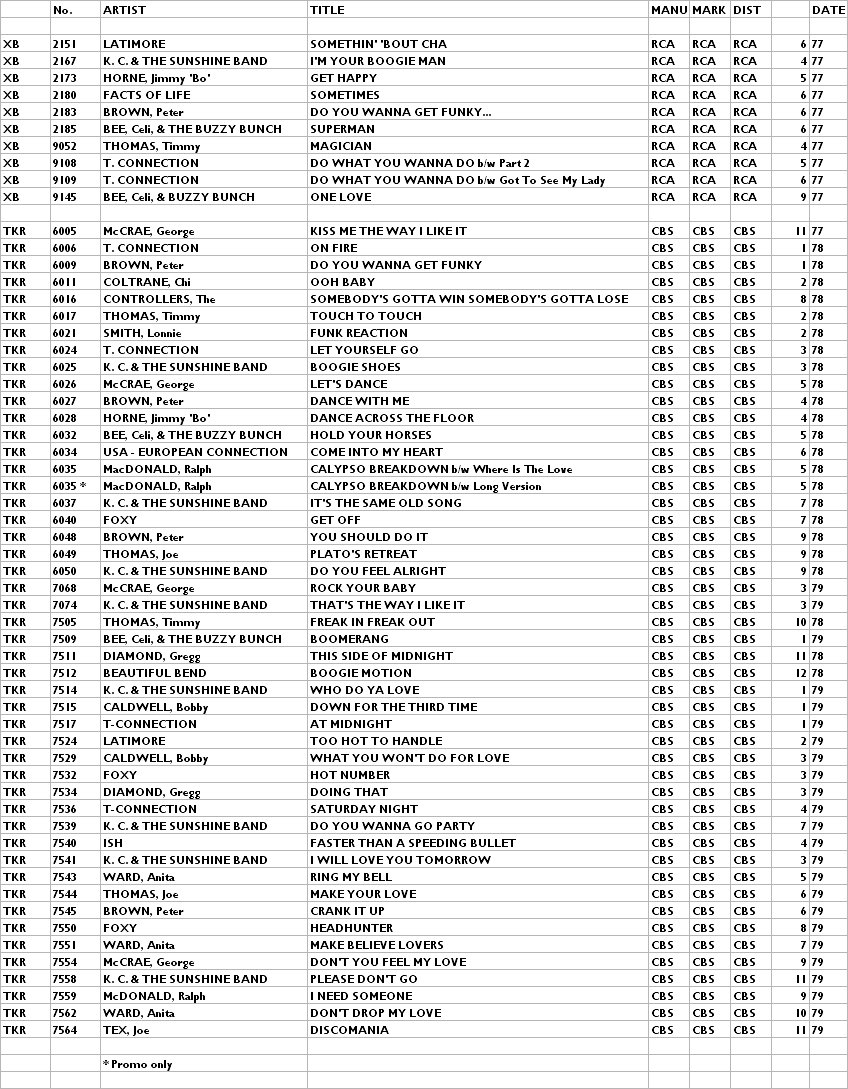


Copyright 2006 Robert Lyons.

